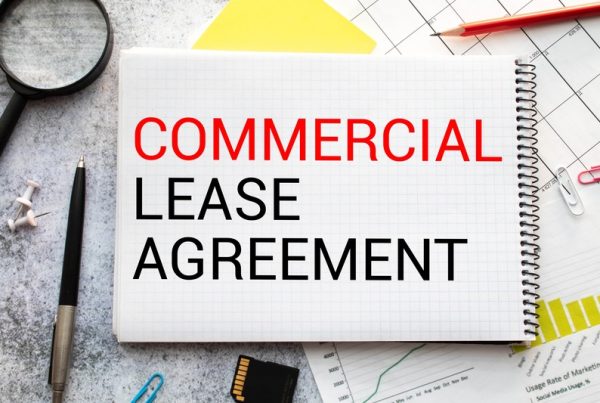Commercial insurance is a vital component of any business’s risk management strategy. However, many businesses make critical mistakes when it comes to securing and maintaining adequate coverage. These errors can lead to significant financial losses, operational disruptions, and even business closure. This article outlines five common commercial insurance mistakes and offers practical advice on how to avoid them.
1. Underinsuring Your Business
Understanding the Risks
Underinsuring your business can leave you vulnerable to substantial financial losses. Many businesses underestimate the value of their assets and potential liabilities, assuming their existing coverage is sufficient. This miscalculation can be disastrous in the event of a claim.
Importance of Regular Valuations
To avoid underinsuring, conduct regular valuations of your business assets. This includes property, equipment, inventory, and other valuable items. The market value of these assets can fluctuate over time, necessitating adjustments to your coverage.
Adjusting Coverage Accordingly
After a thorough valuation, adjust your insurance coverage to reflect the current value of your assets. This proactive approach ensures that your business is adequately protected against potential losses. Regularly review and update your policy to keep pace with changes in your business operations and asset values.
Case Study: A Real-World Example
Consider a small manufacturing company that experienced a significant loss due to underinsurance. The company had outdated valuations and insufficient coverage. When a fire destroyed their facility, the insurance payout covered only a fraction of the replacement cost. This left the business struggling to rebuild and recover.
Actionable Steps
- Schedule annual valuations of all business assets.
- Consult with your insurance agent to adjust coverage as needed.
- Keep detailed records of asset values and updates.
2. Not Reviewing and Updating Policies
The Dynamic Nature of Business
Business needs evolve over time. New equipment, changes in operations, and regulatory changes can impact your insurance requirements. Failing to review and update your policies can result in coverage gaps.
Importance of Regular Policy Reviews
Regularly reviewing your insurance policies is crucial. This practice ensures that your coverage aligns with your current operations and regulatory requirements. Policy reviews should be conducted at least annually or whenever significant changes occur within your business.
Changes in Regulations
Staying informed about regulatory changes is essential. New laws and regulations can affect your insurance needs. For instance, changes in workers’ compensation laws may require adjustments to your Workers Comp Insurance coverage.
Real-World Scenario
A tech startup expanded its operations and added new equipment. However, they failed to update their insurance policy accordingly. When a theft occurred, they discovered that their outdated policy did not cover the new equipment, leading to significant financial loss.
Actionable Steps
- Conduct annual policy reviews with your insurance agent.
- Update your policies whenever there are significant changes in operations or equipment.
- Stay informed about regulatory changes that may impact your insurance needs.
3. Overlooking Business Interruption Insurance
What is Business Interruption Insurance?
Business interruption insurance covers lost income and ongoing expenses if your business is forced to close temporarily due to a covered event. This coverage can be crucial for maintaining financial stability during unexpected disruptions.
Importance of Business Interruption Insurance
Many businesses overlook the importance of this coverage. Without it, a temporary closure can lead to severe financial strain, potentially resulting in permanent closure. Business interruption insurance provides a safety net, ensuring you can continue to pay bills, salaries, and other expenses during downtime.
Selecting Appropriate Coverage Limits
When selecting business interruption insurance, carefully consider your coverage limits. Assess your business’s income and expenses to determine the appropriate amount of coverage. Consult with your insurance agent to ensure you have adequate protection.
Case Study: A Restaurant’s Experience
A popular restaurant experienced a prolonged closure due to a kitchen fire. Fortunately, they had business interruption insurance, which covered their lost income and ongoing expenses. This allowed them to retain their staff and reopen successfully after repairs.
Actionable Steps
- Evaluate your business’s income and expenses to determine appropriate coverage limits.
- Consult with your insurance agent to select the right business interruption insurance.
- Regularly review and update your coverage as your business grows.
4. Choosing the Cheapest Option
The Cost vs. Coverage Dilemma
While cost is an important factor, focusing solely on price can lead to inadequate coverage. Cheap policies often come with lower coverage limits, higher deductibles, and numerous exclusions, which can leave you exposed to significant risks.
Importance of Comprehensive Coverage
Rather than choosing the cheapest option, prioritize comprehensive coverage. Compare policies from reputable insurers, considering factors like coverage limits, deductibles, and exclusions. A slightly higher premium can provide significantly better protection and peace of mind.
Comparing Policies
When comparing policies, don’t just look at the price. Assess the quality of coverage, the insurer’s reputation, and the terms of the policy. Look for policies that offer the best value in terms of coverage and reliability.
Real-World Example
A small retail business opted for the cheapest insurance policy available. When a major flood damaged their store, they discovered their policy had low coverage limits and high deductibles, resulting in substantial out-of-pocket expenses.
Actionable Steps
- Compare policies from multiple insurers, focusing on coverage quality.
- Consider factors like coverage limits, deductibles, and exclusions, not just price.
- Choose a policy that offers the best value and protection for your business.
5. Not Understanding Policy Exclusions
The Pitfalls of Ignorance
Many business owners don’t thoroughly read their insurance policies. This can lead to unpleasant surprises when a claim is denied due to exclusions. Understanding policy exclusions is crucial for managing risks effectively.
Importance of Reading the Fine Print
Carefully review your insurance policy to understand what is and isn’t covered. Pay close attention to exclusions and seek clarification on any unclear terms. This knowledge helps you make informed decisions and avoid coverage gaps.
Seeking Professional Advice
If you’re unsure about any aspect of your policy, consult with your insurance agent or a legal professional. They can help you understand the terms and ensure you have the right coverage for your business needs.
Real-World Scenario
A construction company filed a claim for equipment damage caused by a storm. However, their policy excluded weather-related damage, leading to a denied claim. This situation could have been avoided with a thorough understanding of policy exclusions.
Actionable Steps
- Read your insurance policy carefully, focusing on exclusions.
- Seek clarification from your insurance agent on any unclear terms.
- Consider professional advice to ensure comprehensive coverage.
Staying Proactive with Commercial Insurance
Avoiding these common commercial insurance mistakes requires diligence, regular reviews, and a thorough understanding of your policies. By taking proactive steps, you can ensure your business is adequately protected against potential risks and losses.
Additional Resources
- Learn more about General Liability Insurance and its benefits.
- Understand the advantages of a Business Owners Policy.
- Explore coverage options for Commercial Auto Insurance.
- Discover the importance of Professional Liability Insurance.
Regularly updating your insurance policies and understanding your coverage are key to avoiding costly mistakes. Protect your business by staying informed and proactive about your insurance needs.












